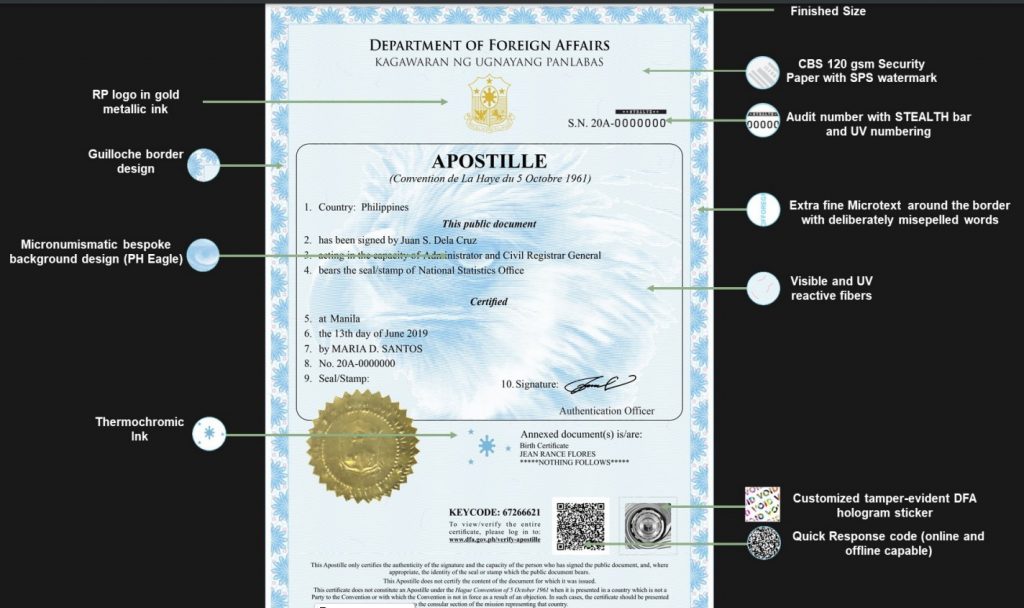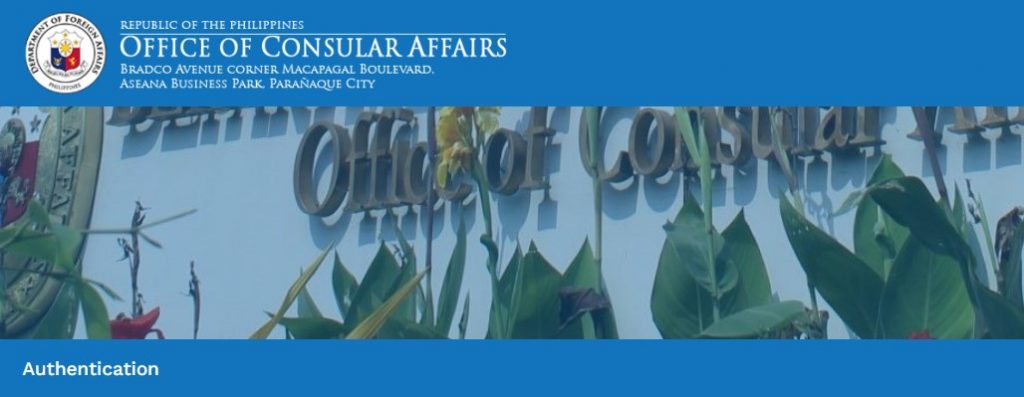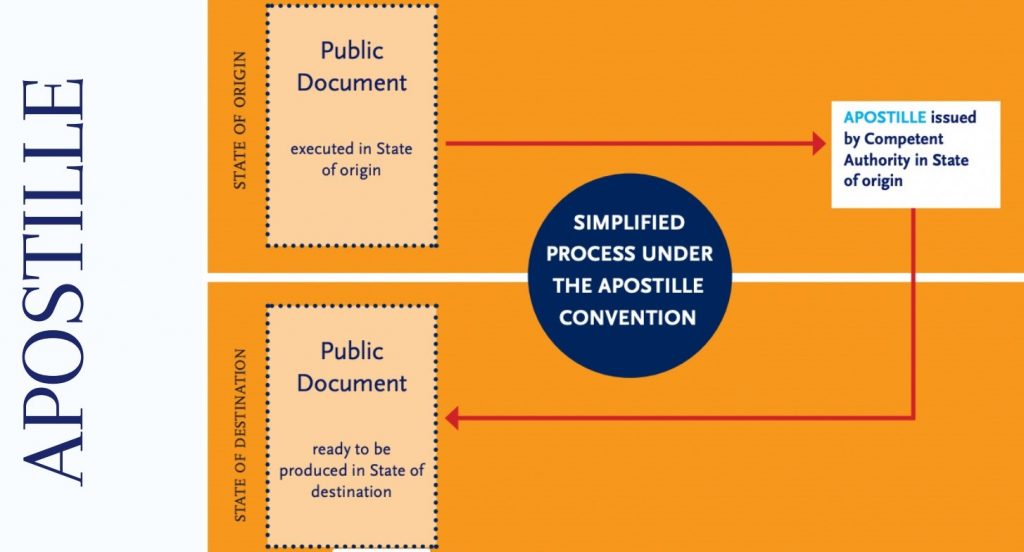
Real estate investing can be tricky, especially when it requires authenticating documents from foreign countries. With different laws and regulations to take into consideration – as well as a new landscape of unfamiliar paperwork – real estate investors may find the process more complex than usual. An apostille is an internationally accepted certification from signatory countries of the Hague Convention of 1961 that allow foreign documents to be acknowledged by other nations.

With property transactions happening across borders, getting paperwork certified is a necessary measure to validate them in the Philippines. This certification ensures that documents signed overseas are legally recognized when buying or selling real estate properties within our jurisdiction. The apostille requirements vary from country to country, so it’s necessary to check with the issuing agency to ensure all requirements are met and accomplished.

This guide provides a thorough and straightforward path to attaining an apostille. With up-to-date information, you’ll be well-informed on document requirements and processes for achieving the legal benefits of an apostille.
Document requirements and processes for an Apostille
1. What is an apostille document?
Before a document can be recognized and accepted, it must go through the authentication process first. Authentication involves verifying that the document is legitimate by an authorized entity from its origin of place. Different types of documentation may require various forms or levels of verification, such as birth certificates, marriage records, and IDs – which often depend on where the paperwork will be used for validation purposes.

An apostille is an internationally recognized certification that verifies the authenticity of a document. Established by The Hague Conference on Private International Law (HCCH), an apostille simplifies the process for documents utilized across international borders within member countries.
2. Who can issue an apostille?
Documents issued from a foreign land but intended for use overseas require authentication from an official source to be valid elsewhere. In the Philippines, only the Department of Foreign Affairs (DFA) can issue an Apostille, which can certify its legitimacy.

The Department of Foreign Affairs has set up an Authentication Division in ASEANA Business Park – in the commercial district of Parañaque City – to keep the citizens informed and updated with domestic consular affairs. For any queries or concerns related to authentication, one can either drop an email at oca.authentication@dfa.gov.ph, set an appointment via https://www.apostilleonline.ph, or call their hotline numbers at 0966-410-8465 (Globe) & 0908-208-6313 (Smart). Giving customers a range of options for verifying papers, DFA provides convenient services in their satellite offices.
3. How to Apostille a document?
An Apostille is an internationally recognized form of authentication for documents issued in one country but used in another.
Authenticating a document for Apostille Application:
A. First, determine if the country you need the document authenticated for is part of the Hague Convention.
- The authentication process varies by country and may require additional steps depending on the jurisdiction.
- Contact issuing authority (notary public or municipal clerk) to provide the necessary information to authenticate a document.
To ensure accurate authentication of any document, notarizing and providing supporting papers is a crucial first step.
B. Once your document is authenticated; it must then be taken to the appropriate government office in your jurisdiction to apply for an apostille stamp or certificate.
For the issuance of an apostille in the Philippines, you can submit it to the Department of Foreign Affairs (DFA) office. You may need to provide additional paperwork or supporting documents to complete this process:-
Apostille Application & Appointment System (AAAS)
The Department of Foreign Affairs is accepting applications in-person and online. Immediate family members, document owners, or authorized representatives can make a booking on a first-come, first-served basis – with all fees paid non-refundable. The process is free for those making an appointment online, and no expedited options are available. Authorized representatives should note that only three documents are allowed per application.
4. What are the documents required for Apostille?
Documents may be submitted for authentication by an authorized representative in the Philippines. The authorized representative must provide valid identification and the following documents:
- Duly signed Special Power of Attorney (SPA); if the applicant is situated abroad, SPA should be consularized by the PH Embassy or Consulate-General.
- Photocopy of applicant’s identification document bearing the signature.
- Photocopy of authorized representative’s identification document.
The DFA offers two processing speeds for a fee. Regular services take seven working days and are charged at Php 100 per document, while expedited processes cost double with completion in four business days.
Comprehensive List of Requirements
| Applicant: | Representative: |
| 1 Original & 1 photocopy of government-issued Identification (ID) Card | • Letter from the owner authorizing the minor applicant is required. |
| Authentication Application Form | • Parent/s of the minor applicant must sign a Special Power of Attorney. |
| • applicant’s government-issued ID and a photocopy | |
| • 1 Original and 1 photocopy of a government-issued ID of representative | |
| • Authentication Application Form |
Supporting Documents
| Type of Documents | Where to get |
| 1. NBI Clearance/Sundry | An original document issued by the NBI with a dry seal |
| 2. Birth/Marriage/Death Certificate, Certificate of No Marriage Record (CENOMAR) | issued by PSA/NSO |
| 3. Advisory on Marriage (AOM), Negative Records | Original document by PSA/NSO |
| • For newly registered records, the Local Civil Registrar’s (LCR) copy certified by PSA | Local Civil Registrar’s Office |
| 4. School Documents | |
| a. Elementary and High School Level (Form 137, Diploma) | Certified True Copy from the school |
| • Certification, Authentication, and Verification (CAV) | DepEd Regional Office |
| b. Technical and Vocational Courses (TOR, Diploma, National Certificate) | Certified True Copy from the school |
| • Certification, Authentication, and Verification (CAV) | TESDA Office |
| c. Private/Local Colleges and Universities (TOR, Diploma) | School |
| • Certification, Authentication, and Verification (CAV) | CHED |
| d. State Universities and Colleges (TOR, Diploma) | Certified True Copy from the school |
| • Certification, Authentication, and Verification (CAV) | School |
| 5. PRC document/s | Certified True Copy from PRC |
| 6. Medical Certificate/s | |
| a. For employment | DOH stamp per document |
| b. For other purposes | |
| • Certification with attached Medical Certificate | issued by DOH |
| 7. CAAP document/s | Certified by CAAP |
| 8. Driver’s License | LTO |
| • Certification | |
| 9. Certificate of Employment, Training, Seminar, Invitation Letter, Baptismal Certificate, and other documents | issued by a private entity |
| • Notarized Affidavit stating necessary factual circumstances and indicating attachments | Regional Trial Court which has jurisdiction over the notary public |
| • Certificate of Authority for a Notarial Act (CANA) | signed by the Executive, Vice-Executive Judge, or any office-authorized signatories issued by the Regional Trial Court |
| 10. Special Power of Attorney, Memorandum of Agreement, Understanding, any other form of Contract, Affidavit | Regional Trial Court which has jurisdiction over the notary public Court where the case was filed |
| • Certificate of Authority for a Notarial Act (CANA) | signed by the Executive, Vice-Executive Judge, or any office-authorized signatories issued by the Regional Trial Court |
| 11. Court document/s (Decision, Resolution, Order) | |
| • Certified True Copy | from the court |
| 12. Immigration Record/s | Certified by BI |
| 13. DSWD Clearance | An original document issued by DSWD |
| 14. Police Clearance/Sundry | An original document issued by PNP |
| 15. Business Registration and other documents issued by a Government Agency | e.g. SEC, DTI, BIR, SSS, Municipal Business Permit & Licensing Office, etc. |
| • Certified True Copy | from the issuing office |
| 16. Barangay Clearance/Certificate | Barangay Chairman’s office |
| • Mayor’s certification/clearance | Mayor’s office |
| 17. Export document/s | Certified by PCCI, DOH, DA, or BFAD, depending on the nature of the document |
5. How to apply for Apostille in the Philippines?
| Process | Processing Time | Fees | Person Responsible |
| A. Document filing | |||
| 1. Present necessary documents for authentication at the Authentication Information Counter. | 5 minutes | Authentication | |
| 2. Complete the application and wait to be called at the Processing area. | 1-hour | Information | |
| 3. Submit the fully accomplished form, verified documents, government-issued ID, and authorization letter to the Processor. | 30-minute | Authentication Processor | |
| 4. Present the Authentication Slip and cover any associated fees for verification at the Cashier. | 5-minute | • Price for regular documents: PHP100. • Price for expedited documents: PHP200. | Authentication Cashier |
| 5. Once encoded, an Apostilled document with Authentication Certificate will be issued. | 2 Working Days and 6 Working Hours | ||
| 5.1 For special cases requiring outside the DFA assurance, confirm with the issuing organization before encoding and releasing Apostille or Authentication Certificates. | 20 Working Days* | Authentication VAFIS personnel | |
| B. Releasing of Authenticated documents | |||
| 1. Drop off your receipt at Door 19’s dropbox then wait to be called over in the releasing area. | 15-minute | Authentication | |
| 2. To gain access, make sure you have a current government-issued ID and present it to the specified window. Listen carefully for any additional instructions from personnel on site. | 5-minute | Releasing personnel | |
| 3. Check the documentation received for completeness to ensure there are no discrepancies. | |||
| C. Releasing of documents with Pending Corrections | |||
| 1. Go to the Pending and Correction window. | |||
| 2. Once at the Pending and Correction window, wait for your turn to be called. | 10-minute | Pending and Correction Personnel | |
| 3. Government-issued ID must be presented to claim authenticated document/s. | 30-minute | Authentication | |
| 4. Ensure the accuracy and completeness of authenticated documents received. | 5-minute | Releasing Personnel |
Once processed, you can take the Apostille to a diplomatic or consular post of the receiving country, where they will verify it and attach their seal on top of the Apostille stamp. After the Apostille has been issued and attached, it will be valid for international use.

6. What documents can be apostilled?
Obtaining an Apostille is a swift and straightforward process for authenticating documents destined for use in other countries. Notarized birth certificates, marriage licenses, diplomas, court orders, powers of attorney – even corporate resolutions – can all be apostilled with relative ease. In certain situations, it may also be necessary to provide translations before securing the required stamp or seal from the approved government body.
7. How much does an Apostille cost in the Philippines?
The Department of Foreign Affairs (DFA) offers Apostille applications for only Php 100 per document. Those looking to speed up the process can opt for an expedited application, which costs just double at Php 200.
8. How long does it take to get documents apostilled in the Philippines?
DFA processing for an apostille requires a minimum of two business days.
9. Does an apostille expire in the Philippines?
Apostille certificates are valid indefinitely; they bear a unique date of issue but never expire. This means that apostilles will always be accepted as long as the document remains unchanged from its original form.
10. Where can I find more information?
Make sure your official documents are accepted here and abroad quickly and confidently with an Apostille. This document verifies the authenticity of the original, providing a fast and reliable way to guarantee its acceptance internationally. Learn more about obtaining one from the Department of Foreign Affairs in the Philippines – simply give them a call at (632) 8 834-4000 or check out their website for details.
Apostille documents are a fast and reliable way to ensure that official documents can be recognized and accepted in foreign countries. They provide an additional layer of security for those engaging in international transactions. It is necessary to know when and where to use them, as well as the proper procedures for obtaining an Apostille.


























Your blog post was incredibly insightful and informative. I appreciate the time and effort you put into providing such a comprehensive analysis.